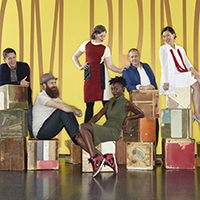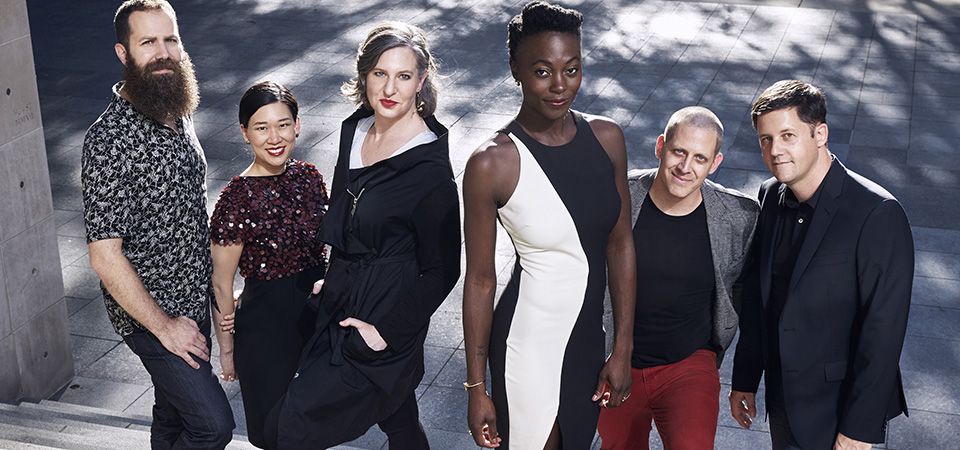In their time, classical music and opera composers such as Monteverdi, Beethoven, Berlioz, Wagner, Prokofiev, Stravinsky, and others were often considered new, innovative, and even radical and revolutionary. So it is today with the young composers featured in a concert by the new-music ensemble Eighth Blackbird on Dec. 14 at Zellerbach Hall.
The performance by the four-time Grammy Award-winning Eighth Blackbird will feature nine works by contemporary composers, including a Bay Area premiere by San Francisco composer, performer, and electronic musician Pamela Z. Among the talented composers, audiences might discover the classical stars of future generations.
Eighth Blackbird was founded in 1996 by a group of Oberlin Conservatory students. They take their name from the eighth stanza of Wallace Stevens’s poem, Thirteen Ways of Looking at a Blackbird: “I know noble accents / And lucid, inescapable rhythms; / But I know, too, / That the blackbird is involved / In what I know.” The cooperative sextet continues today under the leadership of founders Lisa Kaplan and Matthew Duvall and for this performance includes Duvall on percussion and Kaplan on piano as well as Nathalie Joachim, flutes; Matt Albert, violin; Zachary Good, clarinets; and Nick Photinos, cello.
Co-artistic director Kaplan says in an interview, “Listening to new work is all about expectations: we’re not laying out Brahms, for example. If you know we play primarily the work of living composers, that’s a good thing to know. The culture is different than 20 years ago, when we started. Then, there was the Kronos Quartet and a few others, but now there are many groups; it’s a part of our culture.”

The concert reflects multiple aspects of contemporary culture, not simply because most of the composers are in their 20s, but in the technology, topics, and musical genres encompassed. Drawing from orchestral and chamber music, young composers integrate electronic music, hip-hop, pop, jazz, blues, metal, funk, spoken word, world music, found sound and more. Eclectic topics or themes include global warming and glacial melting, Lewis Carroll stories, spicy chicken patties, vocal speaking patterns and rhythms and the poetry of Pablo Picasso, among others.
Kaplan says members of the group introduce work occasionally during the program, but avoid getting too technical so that the music remains accessible to the audience. “It’s important they experience the piece with us. We’re not just playing at them, we’re playing with them. Otherwise, they fear they might not hear something or ‘get it.’ It’s more about why we’re sharing a composer’s work.”
In Pamela Z’s new work, Ways of Looking, modern technology combines with live acoustic performance through recorded and live-processed electronics, video, wireless MIDI controller (that produces gesture-controlled sound) and more. Far from off-putting, the “techie” layers of Pamela Z’s exploration of filler words such as “um,” and overused modifiers like “very,” introduce humor. “It’s great, because the music has gravitas, but doesn’t have to be serious all the time,” says Kaplan.
